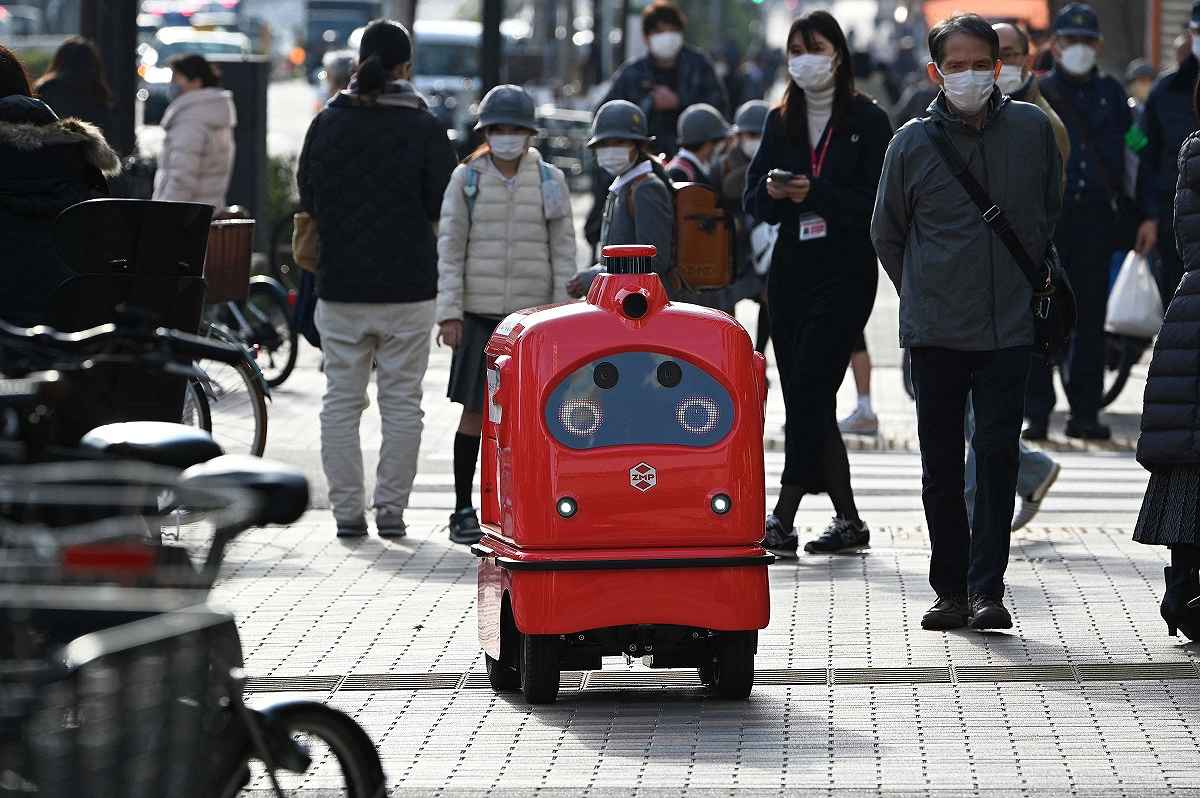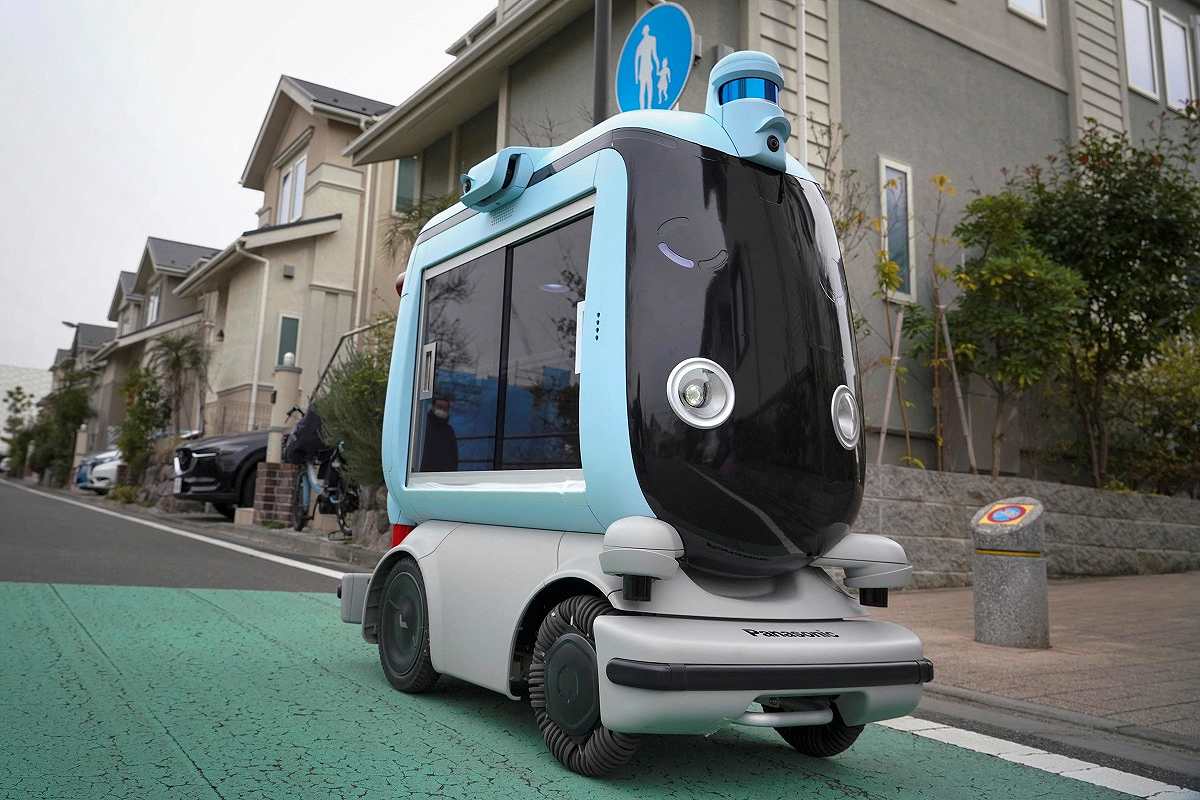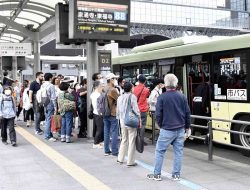
A DeliRo delivery robot developed by robotics firm ZMP moves along a street in Tokyo on Jan. 18.
10:00 JST, February 9, 2023
FUJISAWA, Kanagawa (AFP-Jiji) — “Excuse me, coming through,” a four-wheeled robot chirps as it dodges pedestrians on a street outside Tokyo, part of an experiment businesses hope will tackle labor shortages and rural isolation.
From April, revised traffic laws will allow self-driving delivery robots to navigate streets across Japan.
Proponents hope the machines could eventually help elderly people in depopulated rural areas get access to goods, while also addressing a shortage of delivery workers in a country with chronic labor shortages.
There are challenges to overcome, acknowledges Hisashi Taniguchi, president of Tokyo-based robotics firm ZMP, including safety concerns.
“They are still newcomers in human society, so it’s natural they’re seen with a bit of discomfort,” he told AFP.
The robots won’t be operating entirely alone, with humans monitoring remotely and able to intervene.
Taniguchi said it’s important the robots “are humble and lovable” to inspire confidence.
ZMP has partnered with behemoths such as Japan Post Holdings in its trials of delivery robots in Tokyo.
Its DeliRo robot aims for a charming look, featuring big, expressive eyes that can be made teary in sadness if pedestrians block its way.
“Every kid around here knows its name,” he said.
There is a serious purpose behind the cuteness.
Japan has one of the world’s oldest populations, with nearly 30% of its citizens aged over 65. Many live in depopulated rural areas that lack easy access to daily necessities.
Labor shortages in its cities and new rules limiting overtime for truck drivers also make it difficult for businesses to keep up with pandemic-fueled e-commerce and delivery demands.

A Hakobo delivery robot developed by Panasonic moving along a street at the Fujisawa Sustainable Smart Town in Fujisawa, Kanagawa Prefecture, on Jan. 27.
“The shortage of workers in transport will be a challenge in the future,” said engineer Dai Fujikawa of electronics giant Panasonic, which is trialing delivery robots in Tokyo and Fujisawa, Kanagawa Prefecture.
“I hope our robots will be used to take over where needed and help ease the labor crunch,” he told AFP.
Similar robots are already in use in countries such as Britain and China but there are concerns in Japan about everything from collisions to theft.
Regulations set a maximum speed of 6 kph, meaning the “chances of severe injury in the event of a collision are relatively small,” said Yutaka Uchimura, a robotic engineering professor at Shibaura Institute of Technology.
But if a robot “moves off the sidewalk and collides with a car due to some discrepancy between the pre-installed location data and the actual environment, that would be extremely worrying,” he said.
Panasonic says its Hakobo robot can judge autonomously when to turn as well as detect obstacles, such as construction and approaching bikes, and stop.
Top Articles in Society
-

Producer Behind Pop Group XG Arrested for Cocaine Possession
-

Man Infected with Measles Reportedly Dined at Restaurant in Tokyo Station
-

Man Infected with Measles May Have Come in Contact with Many People in Tokyo, Went to Store, Restaurant Around When Symptoms Emerged
-

Woman with Measles Visited Hospital in Tokyo Multiple Times Before Being Diagnosed with Disease
-

Australian Woman Dies After Mishap on Ski Lift in Nagano Prefecture
JN ACCESS RANKING
-

Producer Behind Pop Group XG Arrested for Cocaine Possession
-

Japan PM Takaichi’s Cabinet Resigns en Masse
-

Man Infected with Measles Reportedly Dined at Restaurant in Tokyo Station
-

Israeli Ambassador to Japan Speaks about Japan’s Role in the Reconstruction of Gaza
-

Videos Plagiarized, Reposted with False Subtitles Claiming ‘Ryukyu Belongs to China’; Anti-China False Information Also Posted in Japan























